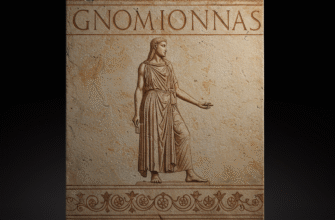There’s a certain spark in humanity, an unquenchable flicker that sometimes ignites into a wildfire of audacity. We tell tales of heroes and heroines, of inventors and explorers, those who push boundaries. But what of those who pushed the ultimate boundary, who looked upon the shimmering, untouchable power of the celestial gods and, instead of bowing in reverence, chose to stand, to question, even to challenge? These are not always stories with happy endings, for the gods of yore were often jealous, wrathful, and quick to punish presumption. Yet, the sheer nerve of these mortals, their breathtaking defiance, echoes through millennia, a testament to a spirit that refused to be entirely cowed by divine might.
Arachne’s Thread of Defiance
Imagine the clatter of looms, a symphony of threads in a dusty Lydian workshop. Here toiled Arachne, a weaver whose fingers danced with such uncanny skill that nymphs were said to creep from their streams just to witness her artistry. Her tapestries were not mere cloth; they were vibrant narratives, alive with such realism that one could almost hear the rustle of leaves or the sigh of a painted lover. But skill, when unmoored from humility, often drifts into dangerous waters. Arachne began to whisper, then proclaim, that her talents surpassed even those of Athena, the very goddess of wisdom and crafts, including weaving itself! A bold claim, wouldn’t you say? Especially when your craft owes its very essence to the divine patron you now disparage.
Athena, ever patient, or perhaps amused by such audacity, first appeared as an old woman, advising caution and respect. “Compete with mortals,” the crone rasped, “but yield to the goddess.” Arachne, her pride now a roaring fire, scoffed. Let the goddess come, she declared, let them weave side by side! And so, Athena revealed her true, radiant form. The contest was on. Athena wove a majestic tapestry depicting the glory of the gods, their power, and the dire fate of mortals who dared to defy them – a clear warning. Arachne, in a breathtaking display of defiance and skill, wove scenes of the gods’ less dignified moments, their amours, their deceits, their failings. Her work was flawless, technically perfect, yet laced with undeniable mockery. Athena, enraged not just by the challenge but by the scandalous perfection of Arachne’s insolent work, tore the tapestry to shreds and struck the mortal. The humiliation was too much for Arachne. But Athena, in a final act of cruel mercy, transformed her into a spider, forever to spin and weave, a reminder of skill perverted by pride.
Prometheus: Fire-Bringer and Friend to Man
Not all who challenged the divine did so out of pure hubris or for personal glory. Consider Prometheus, a Titan, yes, but one whose heart ached for the plight of fledgling humanity. In the cold, harsh world Zeus had ordained for mortals, they shivered in darkness, ignorant and helpless. Prometheus saw their potential, a potential Zeus seemed keen to suppress. He dared to defy the King of Gods himself, stealing sacred fire from Olympus – not a trinket, but the very spark of knowledge, craftsmanship, and civilization – and delivered it to mankind. This was no mere prank; it was a fundamental shift in the balance of power, an elevation of the mortal race that infuriated Zeus to his core.
The retribution was, as one might expect from an affronted Olympian, both terrible and eternal. Prometheus was chained to a rock in the Caucasus Mountains, where each day an eagle, Zeus’s own messenger of agony, would descend to feast upon his liver, only for it to regenerate overnight, ensuring the torture would never cease. His was a challenge born of compassion, a defiant act of philanthropy. He did not seek to become a god, but to lift mortals closer to a state of dignity, and for this, he paid a price that underscores the terrifying intolerance of the gods for any who dared to alter their grand, often callous, designs.
Sisyphus and the Art of Cheating Death
If Arachne embodied artistic pride and Prometheus compassionate rebellion, then Sisyphus of Ephyra was the master of cunning, a trickster king whose cleverness knew no bounds, not even those set by the gods of the Underworld. His most famous escapade involved outwitting Thanatos, Death himself. When his time came, Sisyphus managed to chain Death, leading to a period where no one on earth could die – a chaotic state of affairs that naturally drew the ire of the gods, particularly Ares, god of war, who found his favorite pastime rather dull without casualties. Once Death was freed and came for Sisyphus again, the wily king had another trick up his sleeve. He instructed his wife, Merope, not to perform the customary funeral rites.
Reaching the Underworld, Sisyphus feigned outrage at his wife’s ‘disrespect’ and convinced a reluctant Persephone, Queen of the Dead, to let him return to the surface briefly to arrange his own proper burial and punish his negligent spouse. Of course, once back among the living, Sisyphus had no intention of returning. He reveled in his extended life, thumbing his nose at the chthonic deities. Eventually, his luck ran out. Dragged back to Tartarus, his punishment was tailor-made for a man who thought he could cheat the system: to eternally roll a massive boulder up a steep hill, only for it to roll back down just as he neared the summit. His challenge was one of sheer, audacious intellect against the inevitable, a testament to mortal ingenuity pushed to its most defiant extreme.
The Skyward Ambition of Bellerophon
Then there was Bellerophon, a hero blessed by the gods, at least for a time. He was the tamer of the magnificent winged horse Pegasus, a gift that set him apart from other mortals. With Pegasus, he accomplished great deeds, slaying the monstrous Chimera and defeating mighty foes. He was lauded, celebrated, a golden boy of his era. But success, like wine, can intoxicate. Bellerophon began to see himself as more than mortal, his triumphs fueling a dangerous arrogance. He believed his place was not among men, but among the gods themselves on Mount Olympus.
So, mounting his celestial steed, he urged Pegasus to fly towards the heavens, towards the home of the deities. This was the ultimate act of presumption. Zeus, watching this audacious ascent, would not tolerate such a breach. He sent a gadfly to sting Pegasus, causing the winged horse to rear and throw Bellerophon from its back. The hero plummeted back to earth, crippled and blinded, spending the rest of his days wandering alone, hated by gods and men alike. His story is a poignant illustration of how quickly divine favor can turn to wrath when a mortal forgets their place, when ambition sours into an attempt to forcibly join the divine ranks.
These chronicles serve as a stark testament to the perilous dance between mortal ambition and divine authority. The line between admirable courage and fatal arrogance is often razor thin, especially when humanity gazes heavenward with intent to usurp or belittle. The gods of these ancient narratives rarely suffered equals, and they certainly never tolerated mockery or direct challenge to their dominion. Remember this: aspiration can be a noble steed, but unchecked, it frequently gallops headlong into an abyss of celestial retribution.
The tales of Arachne, Prometheus, Sisyphus, and Bellerophon, among countless others lost to time or whispered only in hushed tones, are more than simple cautionary fables. They explore the very essence of the human condition: our yearning for more, our creative spark, our defiance in the face of overwhelming power, and yes, our capacity for devastating pride. While the punishments were invariably horrific, designed to be eternal warnings, there’s an undeniable, perhaps uncomfortable, admiration we feel for these figures. They dared. They looked at the unscalable walls of divine power and, for a myriad of reasons – pride, compassion, cunning, ambition – they decided to try and climb, or even dismantle them. Their failures are legendary, but so too is their audacity, a spirit that, for better or worse, continues to define humanity’s restless journey through a universe far grander and more mysterious than ourselves.









